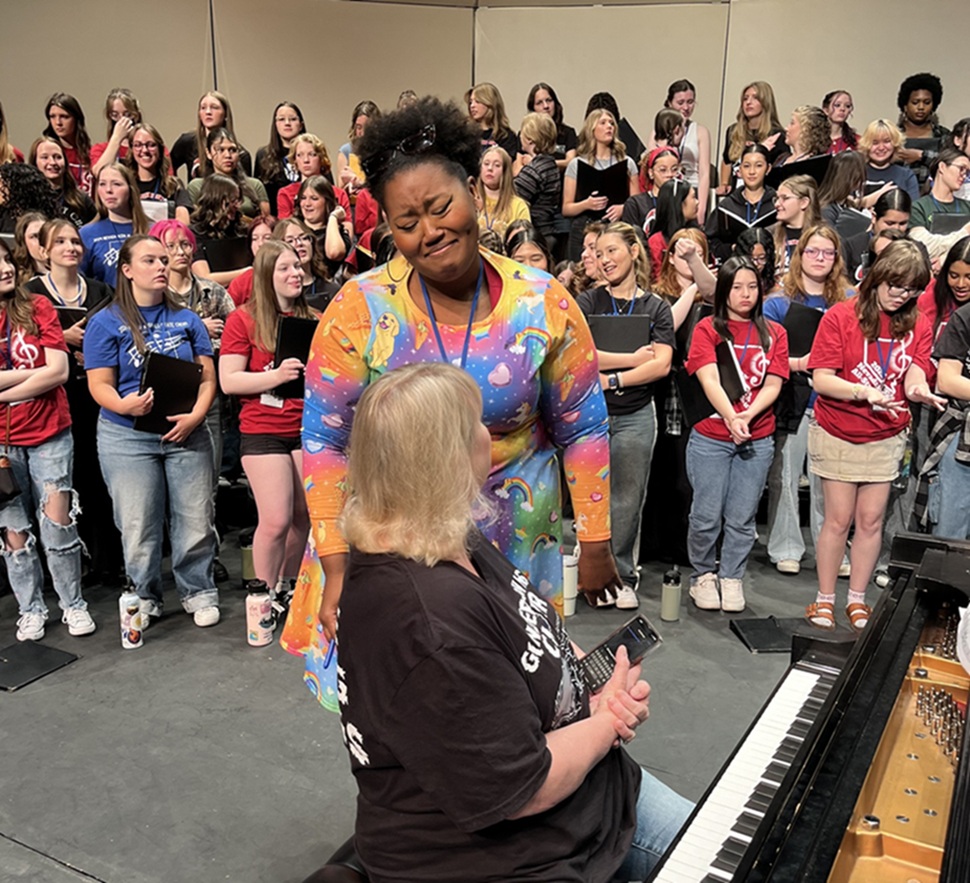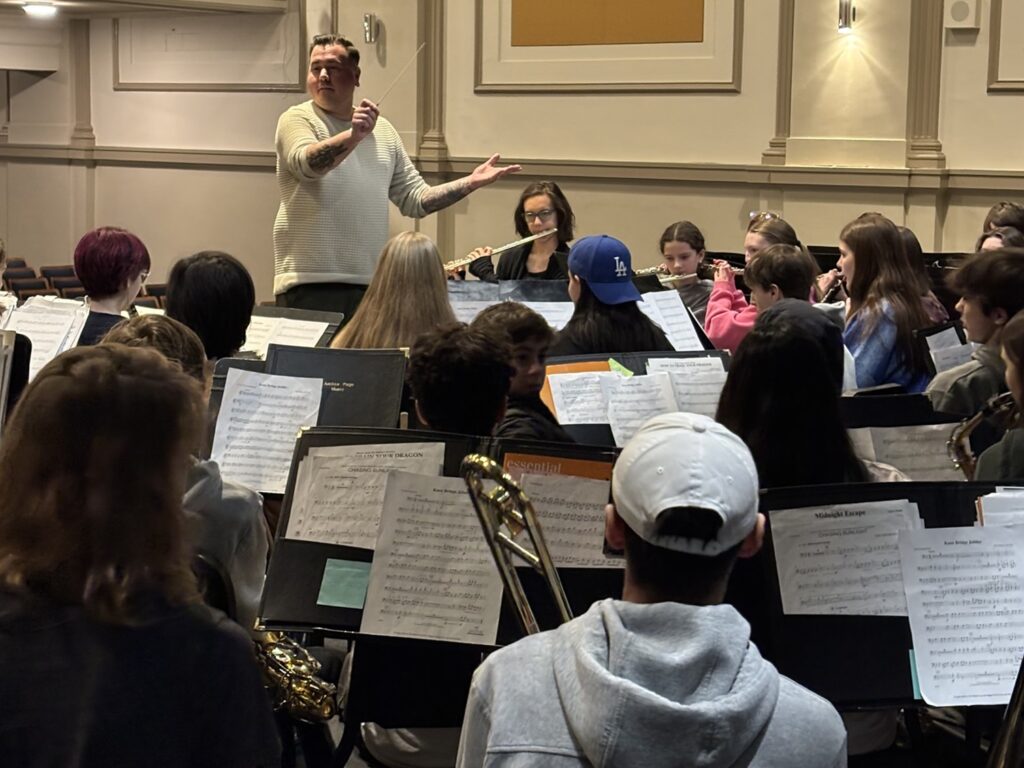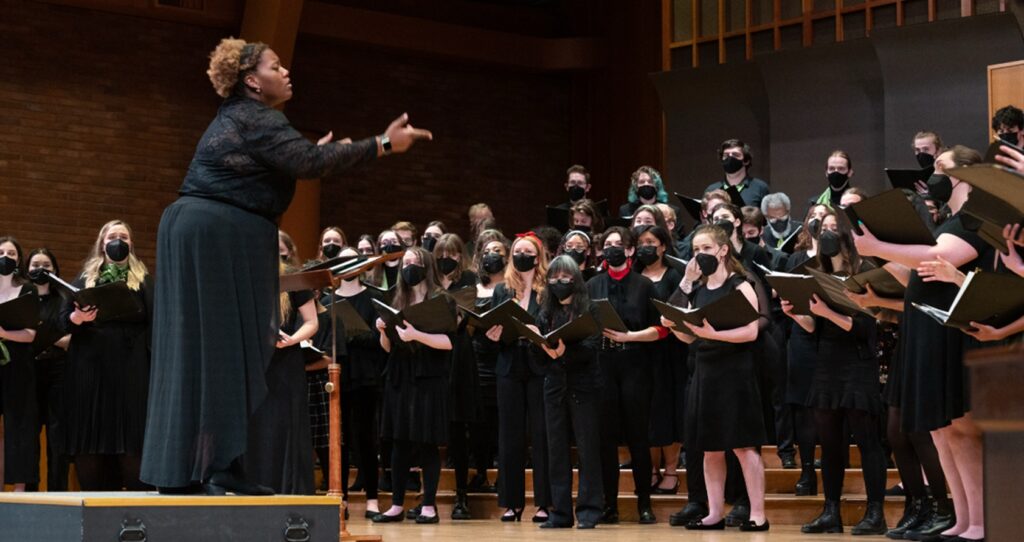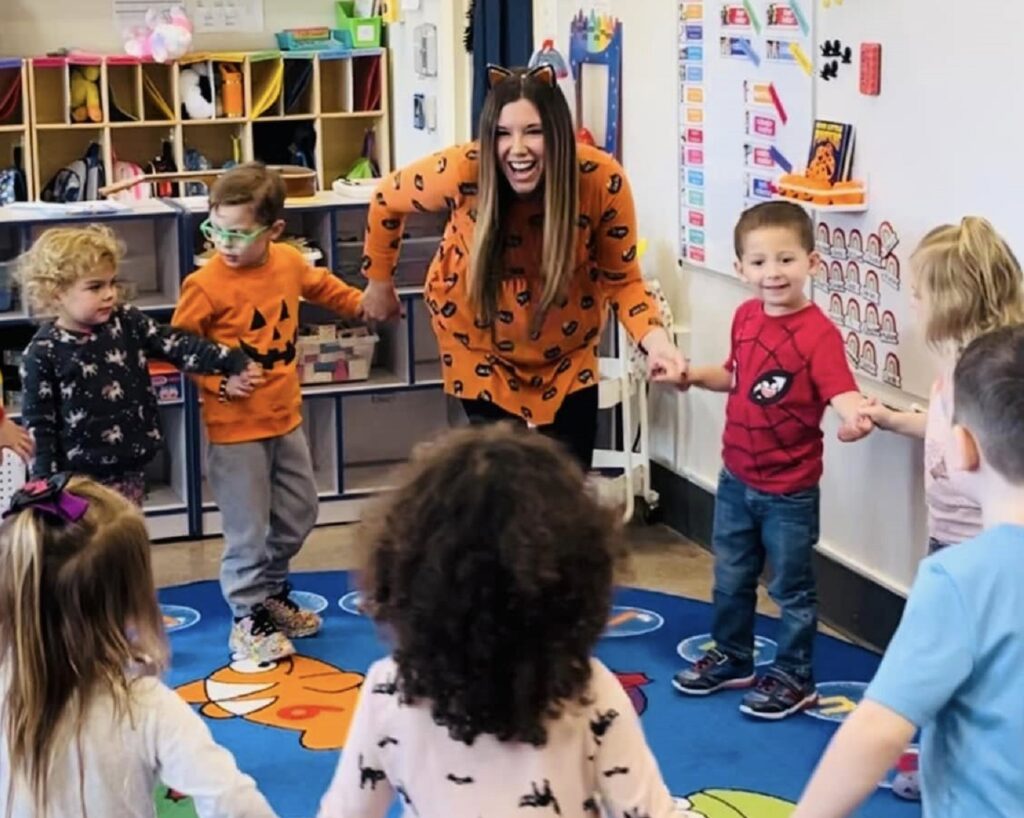Tagged Under:
Overcoming Performance Anxiety
Earning trust and treating elementary students with respect are key to helping them perform with pride.
Award-winning musician and educator Jeremy Bartunek has released two full-length albums and co-composed five musicals. But perhaps his greatest accomplishment happens when a struggling child overcomes performance anxiety because of his leadership.
Bartunek, who directs the children’s choir for grades 1 to 5 at Greenbriar School in the Northbrook 28 school district located north of Chicago, became concerned about how many students he saw who became terribly anxious about performing in the winter concert. Even though they were recruited to do this every year in December, these kids felt pressure and experienced social anxiety about performing for an audience of other kids. They would seek soothing from the social worker or just stay home on concert day. It clearly wasn’t a sustainable situation.
“It was not good or healthy,” says Bartunek, a quarterfinalist for the2024 GRAMMY® Music Educator Award. “¬¬So many kids were physically unable to perform in front of their peers ¬¬— it was burning out the social worker and the school counselor.”

Knowing that the fear stemmed from a lack of confidence, Bartunek knew that he needed to work hard to earn the children’s trust. That trust would help him foster confidence in his students as the semester unfolded in a new school year.
“The last thing anyone wants is to have kids having panic attacks in the school counselor’s office on the day of the show,” says Bartunek. “I’m trying to identify them early.”
Stage fright stems from different reasons, such as students’ inherent personalities, their home life and past experiences. The key is to treat them well. “I foster an environment of respect — throughout my kids, throughout my classroom,” Bartunek says. “I respect them as learners. Even when they see me walking through the hallways, I am always setting an example.

Playing Games
Bartunek likes to use playful games to connect with children. For example, instead of reading books silently, he has students sing the words to the book out loud with expression — just like reading a book out loud, but with singing.
“Working through that process gives kids confidence so they realize that they know what they’re doing,” Bartunek says. “Some kids are stronger readers than others, but they all know how to read.”
Bartunek, who was recognized as a Yamaha “40 Under 40” music educator in 2024, extends this melody-tinged speaking to conversational singing, which is fun. He will sing, “Hello, how are you?” in any tune, instead of saying the words, and the kids respond in kind. That often gets them laughing, which put them at ease and helps them develop their musical sense.
“My goal is to have kids singing for 80 percent of the class period,” he says. “That’s where your musicianship comes from: your singing and your ear.”
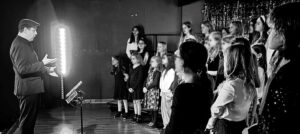
Preparation
Bartunek finds that preparing students for performing and talking them through their fears is a good way to help them cope.
“I tell them ahead of time: ‘You’re going to do this in front of your peers and you might be nervous. How do you feel?’ And I work with them,” he says.
“They know they are in a safe space,” says Bartunek, who is working on a doctorate degree in musical arts from Boston University remotely. “We acknowledge their feelings and discuss them. I’ll say: ‘What does that feel like? That is an interesting feeling, isn’t it? Does anyone else feel that way?’ That way, students find out that other kids are in the same boat.”
Anxious kids often ask Bartunek: “Can we just sing in front of you?” But that’s not a good idea, he says. Students may sound great in private with him, but they still are unable to get up on stage and perform in front of their peers, so one-on-one practices do nothing to solve the problem.
Bartunek’s techniques have worked well. This year, out of his 5th grade class of 60 students, every single one of them tried out for a singing solo in the musical, and many of them are involved in his “Something More” chorus. This group of about 45 students in 4th and 5th grade are highly committed to after-school music rehearsals and performances around the community at least once a month.
“At the end of the day, I want everybody to be on stage and singing,” Bartunek says. “I know that not everyone is going to be a star, but if I can give them the courage and desire to get up there and try their best, then I’ve done my job.”
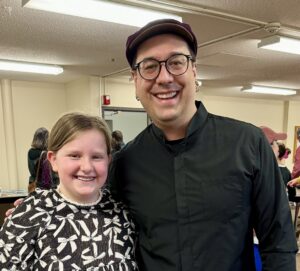
Teaching Philosophy
Bartunek, who received a Golden Apple Award for Excellence in Teaching in 2020, is passionate about nurturing the inner musician in each child, which is very important in elementary school because only some kids take music electives in middle school and high school. “Every person is musical; everyone can do it,” he says. “I believe that the best musicians should be teachers, and the best teachers should teach the youngest students. The early childhood years are so important. There is a chance that for the six years I have with these kids, I’m the only musical influence in their lives.”
According to Bartunek, there are four things that students need in music class: well-trained minds, well-trained hands, well-trained ears and well-trained hearts.
“All four of these things need to be developed in young children — everything follows from that,” Bartunek says.










